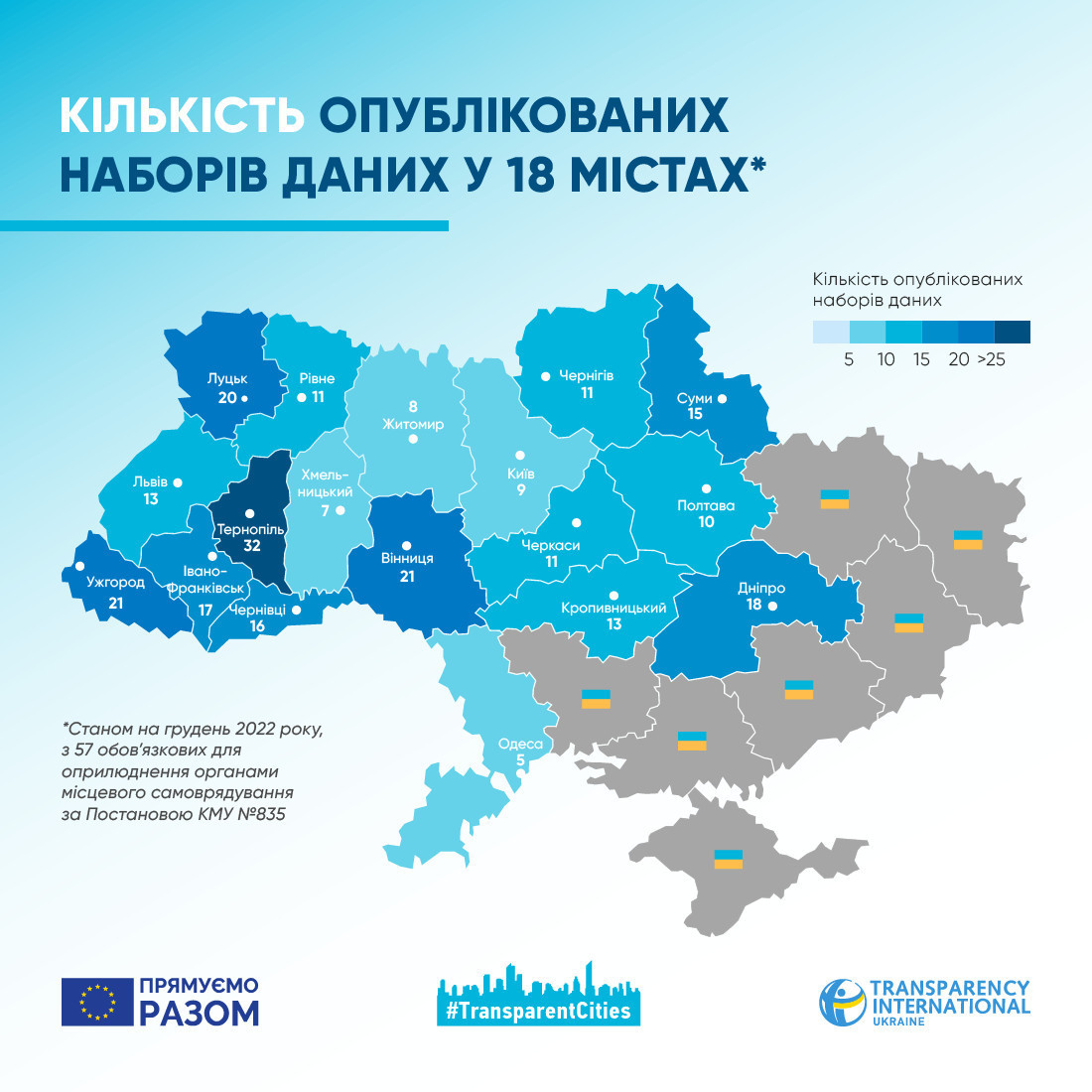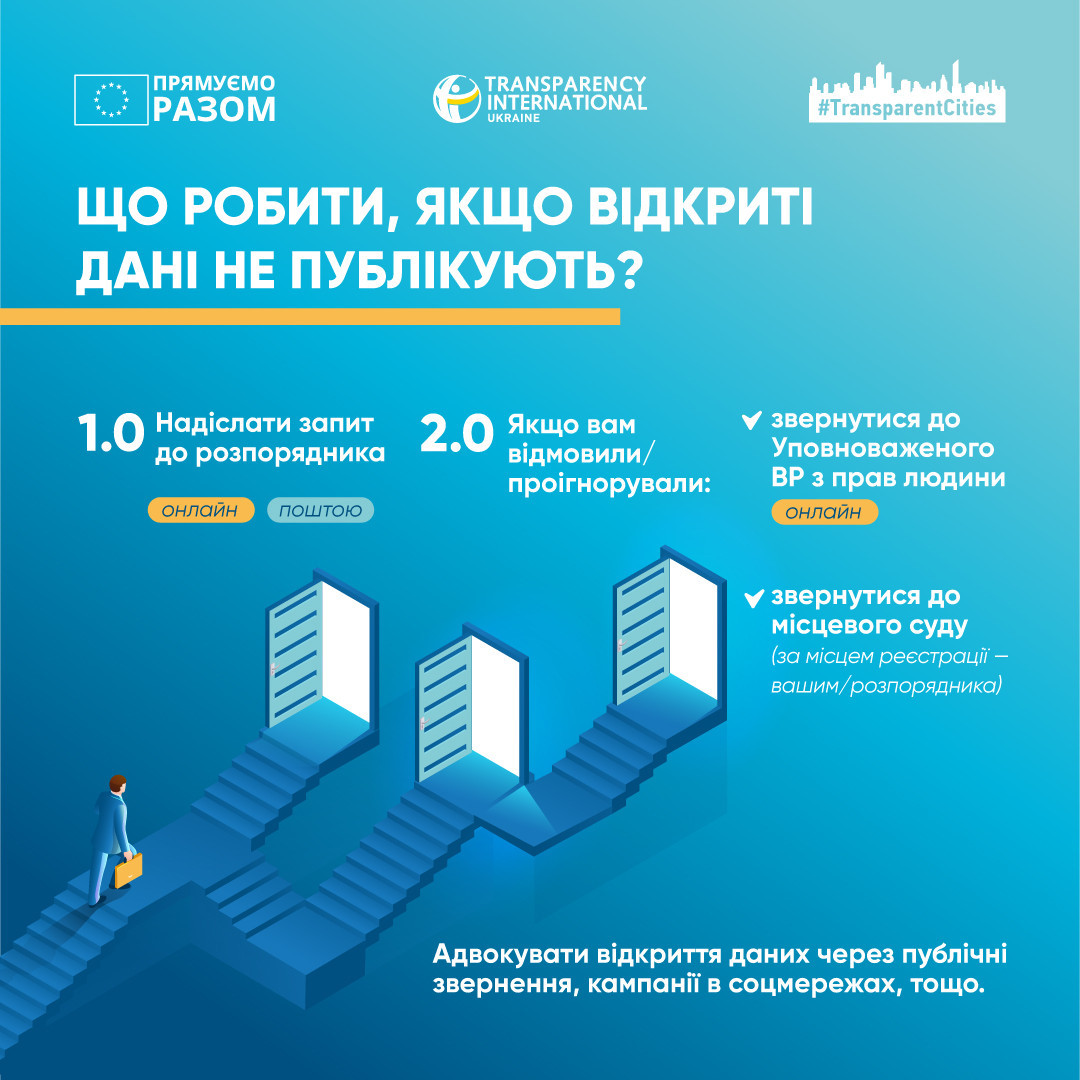Before the full-scale war in Ukraine began, we had achieved significant progress in the openness of information. The war changed everything: hundreds of websites were shut down, datasets were concealed, and inquiries for public information went unanswered. The access to public information has regressed.
Which data should the local authorities necessarily publish under martial law? What should be done if local governments refuse to provide you with information? Since it's International Open Data Day, let's find out.
Access to information during war
Public information is information reflected and documented by any means and on any media, obtained or created in the course of the authorities' performance of their duties. The right of every citizen to access such information is guaranteed by the legislation of Ukraine.
However, with the introduction of martial law, a special legal regime began to function. In particular, there is a partial restriction of the constitutional right of people to freely collect, store, use, and disseminate information orally, in writing, or otherwise.
However, these restrictions apply only in the interests of national security, territorial integrity, or public order. In no way do they abolish the key provisions of the Law of Ukraine On Access to Public Information.
However, sometimes restrictions that do not actually comply with the Law are applied to information. For example, a clause on force majeure circumstances (such as the threat of war or armed conflict, etc.) allowed the authorities to postpone consideration of requests for information. It resulted in a negative practice of replying to the inquiries with “until the end of martial law.”
However, the postponement shall only apply for a period of time until these circumstances have been remedied. It should be the result of considering each specific inquiry, and not for all inquiries in general.
In addition, due to “the military aggression of Russia against Ukraine” and the “imposition of martial law,” the authorities began to establish general restrictions on access to information. But these restrictions should only be applied using the “three-part test” on a case-by-case basis. It consists of the following questions:
- Does the classification of information serve the interests of national security, territorial integrity, public order and prevention of offenses, public health, protection of reputation or other rights of people, maintaining prestige and impartiality of justice, non-disclosure of confidential data?
- Will the disclosure of information cause significant harm to these interests?
- Does the harm of disclosure outweigh the public interest?
Information managers must provide opinions on the presence of all these grounds. Otherwise, the restriction of access can be considered unreasonable. We also recommend focusing on the content and updates of information on official portals and social media pages of the local government. To enable residents to exercise their legal right to access public information.
The imposition of martial law in the country does not give grounds to restrict the right to obtain information. This is only possible in the interests of national security, territorial integrity, or public order.
Closed Open Data
Open data is also public information, but in a format suitable for automated processing. In other words, such information can be processed by software without human intervention. Datasets can be analyzed, compared with others, visualized, and shared in a convenient format.
This is an important basis for the work of journalists, think tanks, and CSOs. For example, our Transparent Cities team uses open data to monitor the level of transparency of local authorities.
Open data are also useful for residents. In this way, they can find out about the availability of free medicines in hospitals, shelter addresses, current utility tariffs, etc.
This information was easiest to find on the Open Data Portal, where it was published by cities in particular. However, with the beginning of the full-scale invasion, the portal was closed, explaining it with security risks. In August 2022, access was partially restored in the rear regions, but much of the information on the portal is outdated.
In addition, in March 2022, the Cabinet of Ministers of Ukraine provided an opportunity for local authorities to restrict the work of registers. Some city councils closed access to geoportals and open data portals at the request of law enforcement agencies.
As a result, as of December last year, 18 city councils of regional centers published only a quarter of the mandatory sets.

Struggle for the right to access: how to obtain the necessary data?
To begin with, check the existing sets on the Open Data Portal or on the website of the data manager (the body that owns the data and is obliged to publish it). If the necessary data are not available, you can send a request to the manager (online or by mail). To do this, use the Inquirer, which will form your request for access to public information.
The request must be sent to the designated email address, which is indicated on the manager's website. If such an option is not provided, send it to the general e-mail in the Contacts section.
The information manager should always be required to explain the reasons for refusal. After all, even under martial law, they are obliged to justify denying the access. If your request was ignored or refused, please contact the Ukrainian Parliament Commissioner for Human Rights. Complaints can be sent to the email address hotline@ombudsman.gov.ua or in a special online form.
The Ombudsman can open proceedings on the request and file a protocol on the violation of your rights in court. Violators will face an administrative fine.
You can also contact the administrative court at the place of registration — yours or the manager's. You will need to pay approximately UAH 900-1,000 of the court fee for one lawsuit. Bank details are available on the websites of the administrative courts which you plan to apply to.
To simplify the process of writing an appeal to the court, we recommend using the online designer at the link. It can be used to write a lawsuit regarding access to public information.

Trust between society and the authorities is critical, especially in times of war. Equally important is the confidence of international donors that Ukrainian public authorities are open, transparent, and accountable in their activities. However, without access to information, this is extremely difficult to achieve.
Our Transparent Cities team is working on a new study on the state of city transparency in conditions of war. We are certain that effective local self-government is the basis for the stability of the state. Moreover, unhindered access to information is not only the constitutional right of every citizen, but also the key to an objective and comprehensive analysis of the work of the authorities.